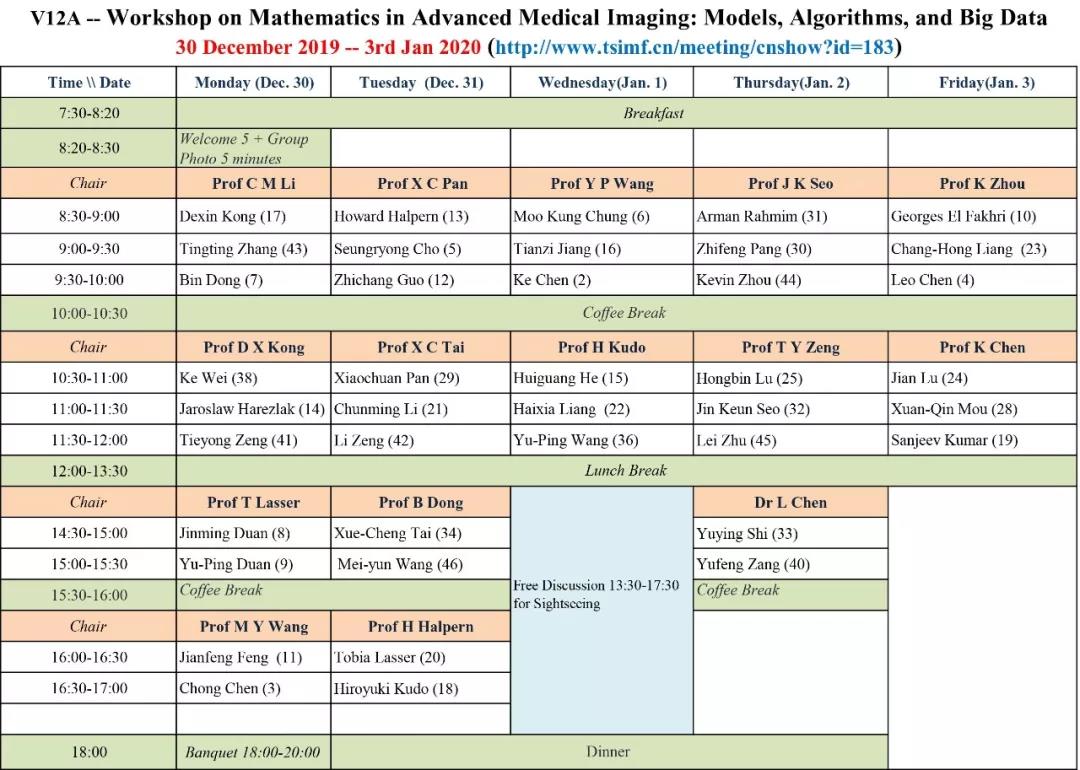 2020-01-09
2020-01-09 35849
35849
The week-long workshop will gather together internationally leading investigators, early-career researchers, and trainees to communicate and review the recent advances in the fast-evolving field of medical imaging, and the impact of advanced applied mathematics on the current and future medical imaging field. Advanced mathematics such as geometry, calculus of variations, wavelets, compressive sensing and sparse representations, and deep learning has always played a key role in the development and enabling of advanced medical imaging technologies of clinical utility. As significantly new landscapes are emerging in the field of medical imaging in the past decade or so, they call naturally for new mathematical foundations and computational tools tailored to address the technological problems arisen in medical imaging. One of the new landscapes in medical imaging concerns the rapidly available tremendous amount of data of various types. It is recognized that there is an urgent need for mathematical and computational tools for handling, analysis, and annotation of these data and, more importantly, for assisting practitioners in their clinically useful interpretation and consumption of the data. In addition, the physics and technologies developed and/or optimized for acquiring medical imaging data are advancing rapidly as the result of powerful detectors, electronics, and computers are becoming readily available commodities. As always, applied mathematical tools would be a necessarily vital component empowering medical imaging technologies by being involved in data models, image creation/processing, and image utilization. As an example, the development of advanced medical tomographic imaging technologies tailored to address cancer screening, precision therapy, and treatment assessment has benefitted tremendously from the advances of optimization theory and algorithms in the field of applied and computational mathematics. There exists a need for a strong synergistic communication and collaboration between investigators
组织者
Ke Chen(University of Liverpool)
Chunming Li (University of Electronic Science and Technology of China)
Dimitris Metaxas(Rutgers University)
Yu-Ping Wang (Tulane University USA)
Xiaochuan Pan (University of Chicago)

相关推荐>